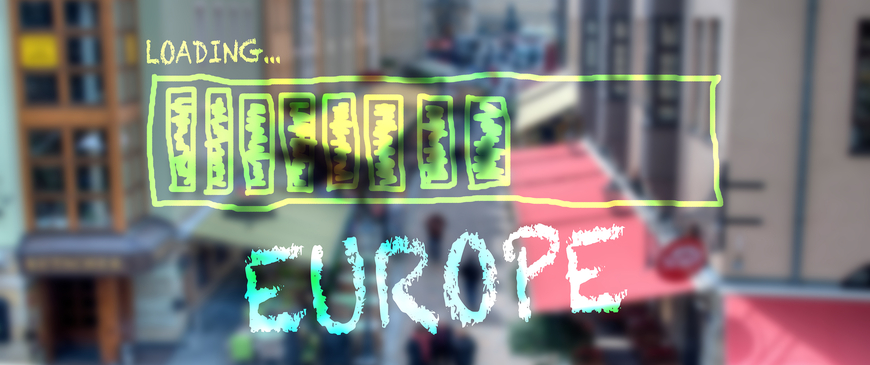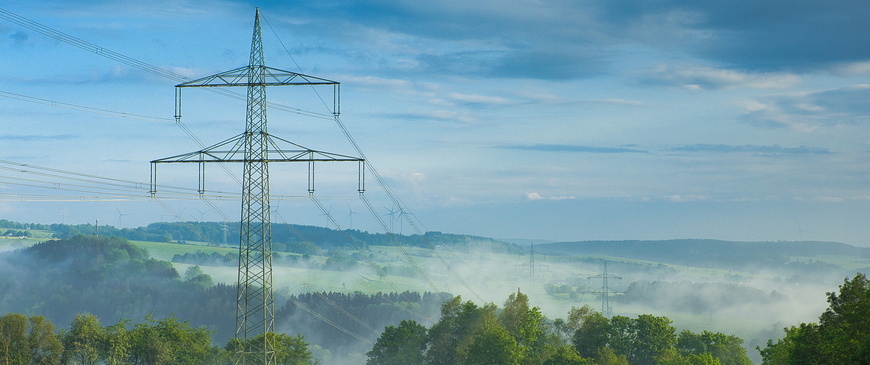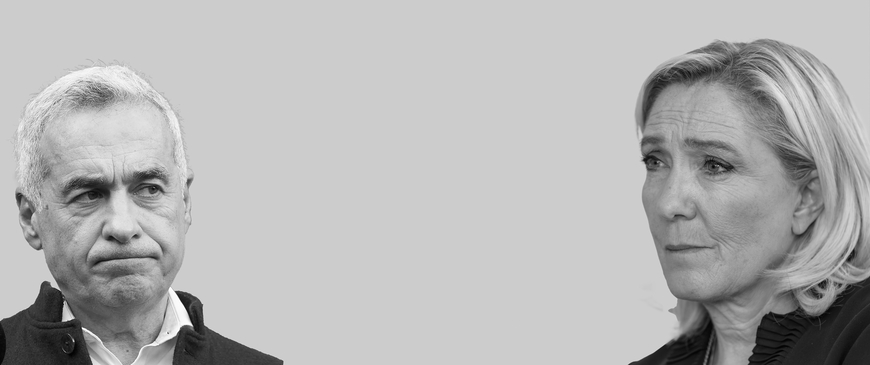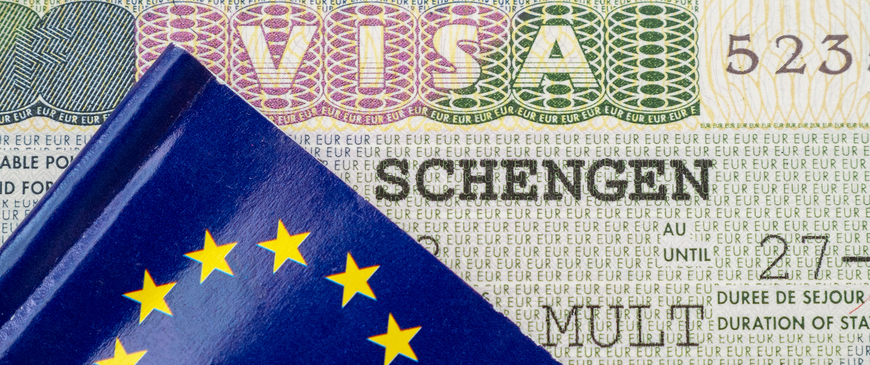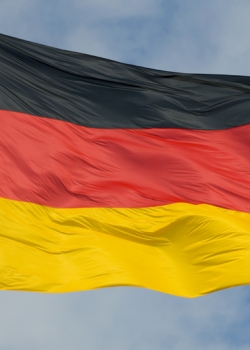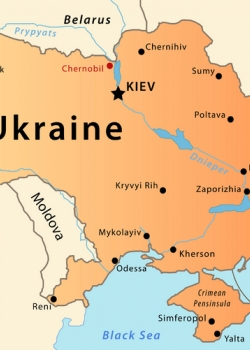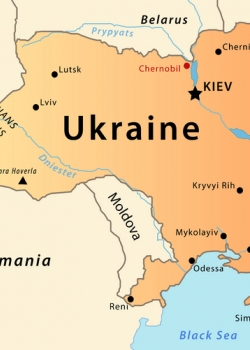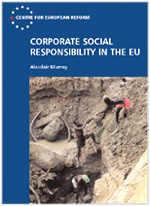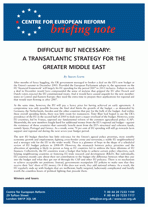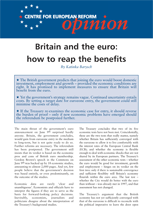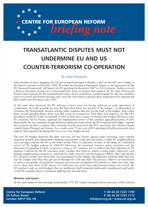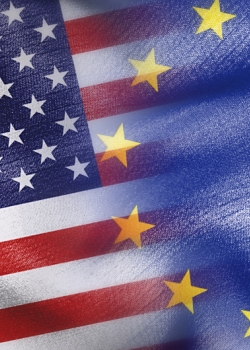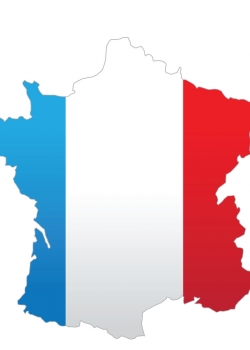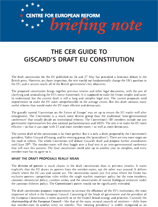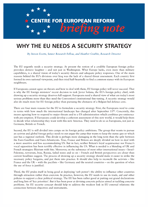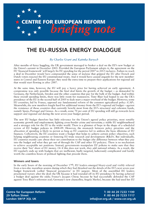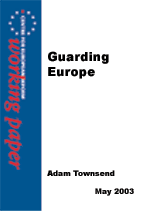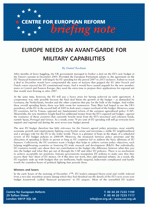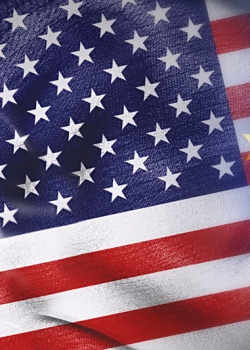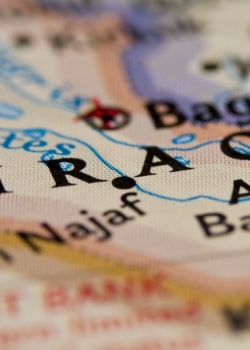Research
Holidays in hell (and Hanover)
04 August 2003
August used to provide a rare opportunity for Europe's political elite to escape the limelight. For a few weeks, EU leaders could catch up on their reading - or sleep - and spend some quality time with long-suffering families.
Tough love for the EU's Eastern neighbours
01 August 2003
After it embraces ten new members in 2004, the EU will have long borders with Russia, Ukraine, Belarus and Moldova. Few people in today's EU know or care much about these countries.
The way forward for European defence
01 August 2003
The EU has lost its military virginity. At the request of the UN, the EU sent 1,500 troops to Congo at the beginning of June 2003. The Congo mission is significant for two reasons: it is both the first autonomous EU mission - one that does not rely on NATO's help - and the EU's first military operation outside Europe.
Issue 31 - 2003
25 July 2003
- Tough love for the EU's Eastern neighbours, Heather Grabbe and Henning Tewes
- The way forward for European defence, Daniel Keohane
- Holidays in hell (and Hanover), Alasdair Murray
Corporate social responsibility in the EU
11 July 2003
Europe wants faster growth. But it also wants social fairness and a healthy environment. This is why companies in the EU are under growing pressure to broaden their focus from pure profits to policies of corporate social responsibility (CSR).
Difficult but necessary: A transatlantic strategy for the greater Middle East
10 June 2003
The US and Europe have to succeed in an exceptionally difficult undertaking. They have to meet not just a single or double challenge, but a triple one: They need to prove, to each other and the rest of the world, that the principal rationale of the US-European partnership is indeed no longer the bilateral relationship and the broader European agenda, but their ability to tackle, together, the growing problems of a troubled world.
Britain and the euro: How to reap the benefits
06 June 2003
The British government predicts that joining the euro would boost domestic investment, employment and growth – provided the economic conditions are right. It has promised to implement measures to ensure that Britain will benefit from the euro.
Transatlantic disputes must not undermine EU and US counter-terrorism co-operation
05 June 2003
Not all is doom and gloom in the tattered transatlantic relationship. EU member-states and the US are co-operating effectively over terrorism. But the US needs to work more with the EU as a whole, rather thansimply through individual European governments. Moreover, officials on both sides of the Atlantic are increasingly...
Clear skies across the Atlantic
02 June 2003
When asked recently by the chairman of the UK House of Commons Transport Select Committee, 'Is the government's policy towards aviation a UK policy or a European one?', Alistair Darling, the transport secretary, slightly sheepishly acknowledged, 'Sometimes it's one, sometimes it's the other.'
An unconventional bargain
02 June 2003
The Convention on the future of Europe has now entered its final phase. To the surprise of many it has already reached consensus on many elements of a new constitution for the EU.
Defrosting the entente glaciale
02 June 2003
When Britain and France fall out, they damage not only each other but also the United Nations, NATO and the EU's embryonic foreign and defence policy. So long as Jacques Chirac and Tony Blair remain leaders of rival European gangs, a harmonious transatlantic relationship is impossible.
Issue 30 - 2003
30 May 2003
- Clear skies across the Atlantic , Nick DeLuca
- An unconventional bargain , Steven Everts and Daniel Keohane
- Defrosting the entente glaciale, Charles Grant
The CER guide to Giscard's draft EU constitution
30 May 2003
The draft constitution for the EU published on 26 and 27 May 2003 has provoked a ferocious debate in the British press. However, on closer inspection, the text would not fundamentally change the UK’s position in the EU, and it secures nearly all of the British government’s key objectives.
Why the EU needs a security strategy
14 May 2003
The EU urgently needs a security strategy. At present the notion of a credible European foreign policy provokes derisive laughter – and not just in Washington. What Europe lacks, even more than military capabilities, is a shared vision of today's security threats and adequate policy responses.
The EU-Russia energy dialogue
09 May 2003
Russia is the EU's biggest neighbour. The EU is Russia's most important trading partner and source of foreign investment. Yet EU-Russia relations have often suffered from discord over contentious issues such as trade quotas, rules on visas, the Kaliningrad enclave or human rights in Chechnya. So it is all the...
Guarding Europe
02 May 2003
The European Union needs to build an effective security framework to stop criminals and terrorists from roaming freely across its internal borders.
Europe needs an avant-garde for military capabilities
04 April 2003
Europe has many lessons to learn from the Iraq crisis. Politically, Europe is divided between "old" (those countries that opposed the Iraq war) and "new" (those that supported the war). Europe’s lack of military muscle compared to the Americans was exposed by the short Iraq campaign. The gap in transatlantic...
More power for the parliament
01 April 2003
The Convention on the future of Europe is drawing up a constitution that is supposed to transform the EU. Much of the discussion has focused on the EU's executive: the powers of the Commission, the organisation of the EU presidency and the role of the European Council.
The decline of American power
01 April 2003
Saddam Hussein notwithstanding, most of the world's problems cannot be solved by military force. Their solution requires 'soft power', which can be defined as a country's ability to influence events through persuasion and attraction, rather than military or financial coercion. A country has more soft power if its culture, values...
War: Who is to blame
01 April 2003
The French President has employed scorn and threats to insult sovereign European states, in a style reminiscent of comments made by Donald Rumsfeld and Richard Perle about France and Germany.

